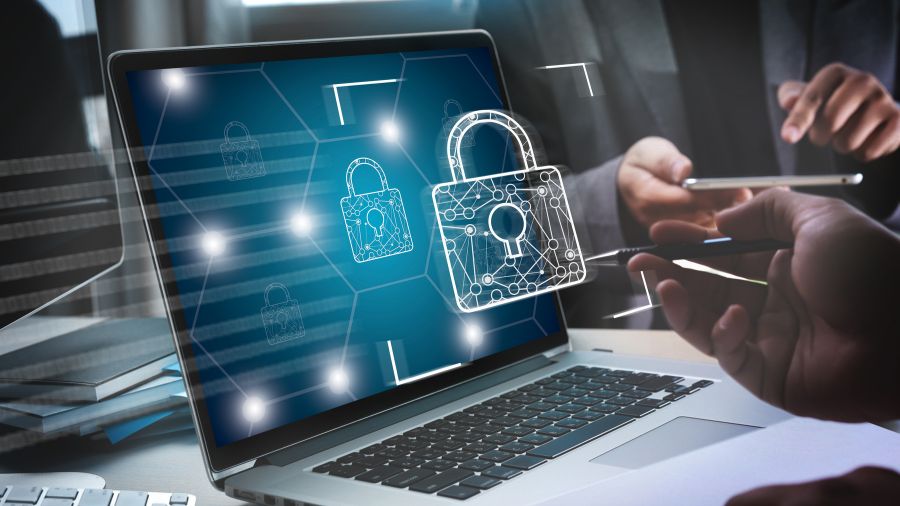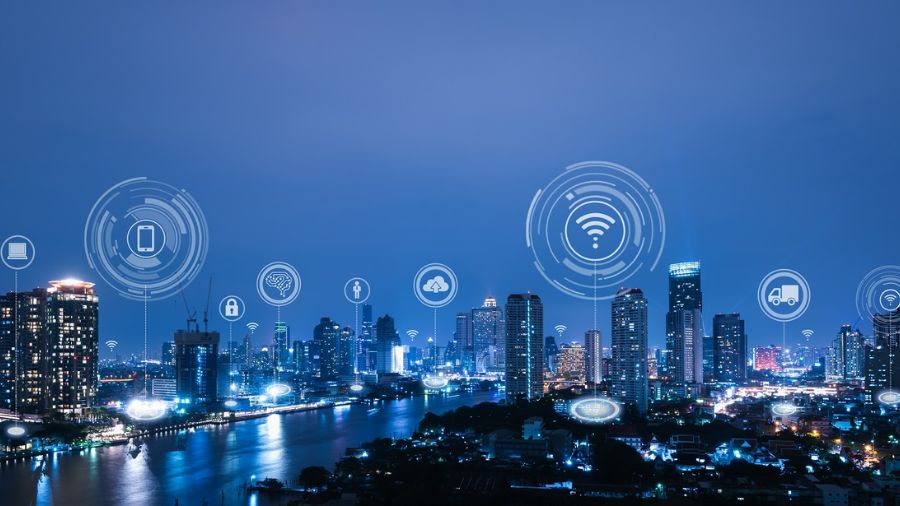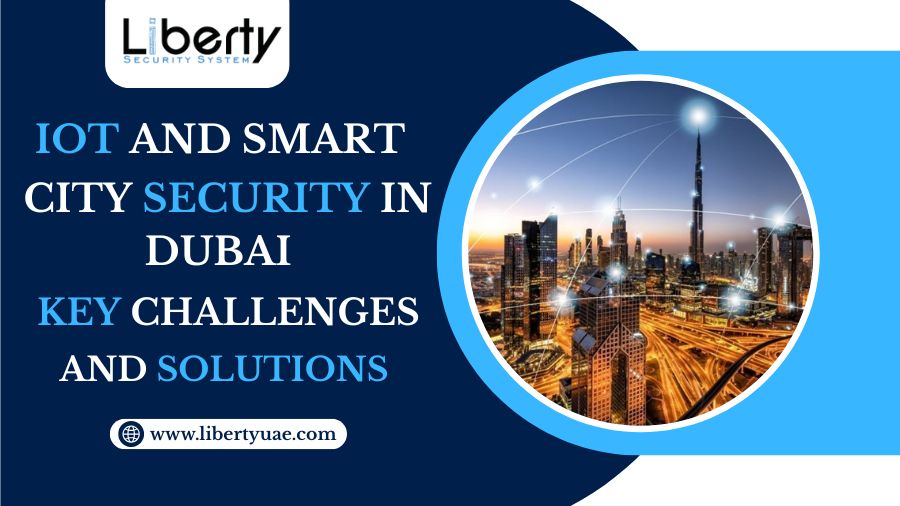In the competition to become a truly smart city, Dubai is at the forefront of the world. The city’s aspirations are fully dependent on the Internet of Things (IoT), from connected health services to automated traffic systems and smart utility grids. These aren’t just cool devices; they’re millions of tiny sensors and gadgets that gather, share, and act on data in real time to make the city more efficient, safer, and greener.
With this rapid digital growth, Smart City Security in Dubai has become more crucial than ever to ensure these systems remain protected and resilient.
But this vast connectivity network, often referred to as the “digital backbone”, presents difficult security issues. Any connected device could be the target of a cyberattack. The top priority for preserving Smart City Security in Dubai is safeguarding this extensive ecosystem.
The Core Challenge – A Massive, Unprotected Attack Surface

The size and variety of the connected infrastructure present the biggest security challenge for an IoT-driven smart city.
1. Too Many Electronic Devices, Insufficient Security
From public Wi-Fi access points and surveillance cameras to traffic sensors and smart meters, a smart city employs billions of devices.
- The Vulnerability – Efficiency and affordability, not security, are the main goals of many IoT devices, particularly older or less expensive models. They frequently have weak, default passwords (such as “admin” or “12345”), are difficult to update, and lack adequate encryption. A hacker can gain access to the city’s central network by using a single, insecure traffic camera or smart street light as a digital backdoor.
- The Danger – Thousands of these unprotected devices could be readily taken over by hackers to form a “botnet.” A massive Distributed Denial of Service (DDoS) attack is then launched using this botnet, flooding a vital system (such as the city’s data platform) with so much bogus traffic that it shuts down.
2. Merging Physical and Digital Threats (Cyber-Physical Risk)
The distinction between the digital (IT) and physical (OT) worlds is blurred in smart cities. Physical harm can now result from a network attack on a city.
- The Vulnerability – Consider a system that manages water treatment facilities or cooling plants in Dubai. A hacker could disrupt vital services and cause chaos in the real world if they take advantage of a weakness in the IT network and move to the OT network.
- The Danger – National security is at risk from attacks on vital infrastructure. Risks that need to be proactively managed include interfering with water quality control, changing traffic signals to cause accidents, and upsetting power grids.
Key Solutions for Smart City Security in Dubai

In order to overcome these obstacles, a multi-layered, strategic approach is needed, which is frequently carried out by knowledgeable IT services in UAE that focus on both enterprise and industrial (OT) security.
Solution 1 – Mandatory IoT Security Standards and Certification
Preventing weak devices from being connected in the first place is the most efficient solution.
- What Dubai is Doing – Dubai is executing strict, city-wide IoT security guidelines and regulatory structures. Any new gadget utilized in public infrastructure should fulfill minimum security measures.
- Actionable Step – Demand robust authentication (not default passwords) and make sure gadgets support firmware updates during their whole lifecycle. Consider this a digital quality control stamp required prior to a device connecting with a smart network.
Solution 2 – Zero Trust Architecture and Network
In a huge network with millions of devices, you cannot trust anybody or anything by default.
This is the main thought of Zero Trust.
- Zero Trust – Every user, gadget, and application, even if it is already inside the network of the city, should be examined and authenticated prior to being issued access to particular data or resources. This drastically restricts the ability of a hacker to move laterally once they get an initial foothold.
- Network Segmentation – Crucial city systems should be isolated from less crucial systems. If a hacker breaches the non-critical network, they are prevented cold by a digital wall before they can get to the functional core of the city. This is a typical service given by IT support in Dubai companies.
Solution 3 – AI-Driven Real-Time Monitoring and Threat Detection
Human safety teams just can’t supervise the data flow from millions of IoT gadgets 24/7. This is where Artificial Intelligence becomes vital.
- Power of AI – Modern cyber security solutions in UAE utilize AI and Machine Learning to supervise huge volumes of data from all sensors. The AI learns what normal traffic looks like for a traffic light, a water pump, or an intelligent meter.
- Proactive Defense – If a traffic light suddenly begins sending 1,000 times its normal data volume or a water pump begins working strangely, the AI finds this anomaly immediately, prior to a human ever would, and isolates the compromised device automatically. This delivers real-time incident response.
Solution 4 – Data Privacy and Encryption
Smart cities gather huge amounts of personal information: where individuals drive, when they pay bills, and how they utilize public services.
Securing this data is crucial for sustaining public faith.
- Encryption and Anonymization – All personal information gathered by sensors should be thoroughly encrypted both when it is stored and when it is moving throughout the network. Personal information must be anonymized wherever possible, so that it can’t be traced back to a particular individual.
- Secure Cloud Platform – Dubi’s centralized Dubai Pulse outlet works as the technical spine. Making sure this cloud platform is secured with the highest levels of protection, including modern access controls, constant auditing, and cutting-edge firewalls, is the cornerstone of data protection. This usually depends on best-in-class IT solutions for business users in Dubai being scaled up for city-wide usage.
The Path Forward – Collaboration is Key

Protecting a smart city isn’t a job for any single government unit. It demands collaboration between public authorities, private firms, and global security professionals.
1. Public-Private Partnerships – The government depends on private IT services in UAE firms to deploy and handle this complicated protection infrastructure. These connections make sure the city leverages the current international protection specialization and technology.
2. Skills and Training – Dubai is making investments in training a local generation of cybersecurity experts proficient in both IT and OT environments to maintain pace with the quickly growing threat landscape.
The ambition of Dubai to be the smartest city in the world is achievable, but only with a commitment to making it the safest city in the world. By addressing the vulnerabilities of the IoT and executing layered, intelligent security solutions, Liberty UAE supports Dubai’s mission by helping strengthen Smart City Security in Dubai. With these strategic efforts, the city is establishing the international standard for smart, resilient urban living.
Also Read: Quality Assurance vs. Quality Control in Pharma – What’s the Difference?






